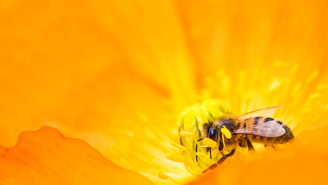In November 2019, as part of the Sustainable Seafood Engagement, Sustainalytics visited Chile to learn more about the country’s rapidly growing aquaculture industry. Commercial salmon farming has developed quickly in Chile over the past two decades, and today the country is the second largest producer of seafood in the world. Although salmon is not a native species to Chile, the climate in the southern part of the country (zones 10 and 11) offers excellent conditions for farming activities. Farmed salmon now represents the country’s second largest export and the industry provides thousands of jobs for people living in some of Chile’s most remote communities.[i] Despite this economic success story, the industry also faces environmental and social challenges which may cause investor risk. These risks may become more pronounced in the future, as the sector now looks to expand deeper into biodiversity hotspots.
Aquaculture is a very important sector for the country however, environmentalists claim that it has grown at the expense of the environment. The industry’s rapid expansion has led to both endemic and epidemic diseases and sizable outbreaks of sea lice at salmon farms. To combat these conditions, the industry uses large amounts of chemicals and antibiotics. The level of antibiotics used in Chile’s salmon farming industry is higher than in any other country in the world and has had considerable impacts on both animal welfare and the environment.[ii]
In 2016, the industry experienced a crisis when heaps of dead fish washed ashore in Chiloé along with dead birds, crabs, several species of mollusks and even sea lions. According to Greenpeace, salmon companies caused this disaster by tossing 9,000 tons of dead fish into the sea.[iii] The rotten fish was consumed by local species, killing them. Salmon farmers in Chile have also come under increased scrutiny after nearly 700,000 fish escaped into the wild in 2018, constituting a risk for wild salmon populations due to increased competition for their food, habitat and spawning partners.
Despite the sanitary and environmental concerns, Chile’s salmon industry continues to grow[iv]. There is an increased demand for salmon globally, with China as a booming new market having doubled its imports from Chile in the last four years[v]. To meet the increased demand, the country is looking to expand production into southern Patagonia (zone 12) as it has outgrown production in zones 10 and 11. The viral and bacterial diseases generated by the industry will require companies to search for new locations for salmon farms. At first, the long distance between Patagonia and the rest of the country was considered an obstacle, but the region’s fresh, clean waters are also advantageous for salmon farming operations.
Patagonia is one of the most pristine and remote areas in the world, possessing unique geographical conditions and great environmental diversity. The regions colder waters would allow for longer production cycles due to a reduced risk of sea lice, diseases and antibiotic use, thus providing opportunities for aquaculture. However, the area is home to an array of wildlife and indigenous groups. Business interests have been met with fierce opposition from scientists and campaigners, claiming that introduction of the non-native salmon into the ecosystem will replicate damage caused by the aquaculture industry elsewhere in the country. Last year, Greenpeace alleged that one company had illegally installed several sea pens near a bioreserve without a license to operate.[vi] This action sparked concern among environmental organizations, who claim the expansion of salmon farms violates the UN’s Convention on Biological Diversity, which prohibits the introduction of “exotic” species. In December 2019, the 5th International Rights of Nature Tribunal[vii] issued rulings in favor of the protesters declaring that salmon farming in Patagonia indicates infringements of the rights of nature.[viii]
Clearly, the industry faces a number of environmental and social challenges which require companies to develop sustainable seafood strategies as a cornerstone of sustainable sourcing. Aquaculture has the potential of offering a sustainable food solution for the world’s growing population and desire for protein. However, it is not a sustainable solution unless it is based on responsible ocean stewardship, community engagement, multi-stakeholder collaboration and production limits. Without a proper approach to assess and manage seafood sustainability risks companies face significant risk exposure, and we believe that investors can play an important role in encouraging improved policies and practices.
For more information about the Sustainable Seafood Engagement, please contact ellinor.haggebrink@sustainalytics.com
Sources:
[i] ”A Sustainable Flight to Salmon Farming in Chile,” Respond Magazine, December, 2019, https://www.rtcc.org/magazine/respond2020/index.html#p=42
[ii] Claudio Miranda, Felix Godoy and Matthew Lee, ”Current Status of the Use of Antibiotics and the Antimicrobial Resistance in the Chilean Salmon Farms,” Frontiers in Microbiology, June 18, 2018, https://www.frontiersin.org/articles/10.3389/fmicb.2018.01284/full
[iii] Rodrigo Soberanes and Andrés Peréz, ”The salmon crisis in Chile’s Chiloé Island,” Mongabay, October 5, 2016, https://news.mongabay.com/2016/10/the-salmon-crisis-in-chiles-chiloe-island/
[iv] Food and Agriculture Organization of the United Nations, ”Algal bloom in Norway and slowing supply growth in Chile to keep prices high,” GLOBEFISH – Information and Analysis on World Fish Trade, September 11, 2019, http://www.fao.org/in-action/globefish/market-reports/resource-detail/en/c/1207742/
[v] Owen Evans, ”$153 billion seafood trade driven by high value of salmon and crustacean trade,” Salmon Business, May 2, 2019, https://salmonbusiness.com/153-billion-seafood-trade-driven-by-high-value-of-the-salmon-and-crustacean-trade/
[vi] GreenPeace, ”Corte acoge rescurso contra Nova Austral: Duro golpe a intento de expansión de salmoneras en la Patagonia,” April 24, 2019, https://www.greenpeace.org/chile/issues/oceanos/1287/corte-acoge-recurso-contra-nova-austral-duro-golpe-a-intento-de-expansion-de-salmoneras-en-la-patagonia/
[vii] The 5th International Rights of Nature Tribunal is an international civil society organization created to provide an alternative system for the protection of the environment, recognizing that ecosystems have the right to live and sustain their life processes with legal standing in court
[viii] Patricio Segura, “International tribunal demands Chile changes its “ecocide attitude” with Patagonia, Patagon Journal, December 17, 2019, https://www.patagonjournal.com/index.php?option=com_content&view=article&id=4242%3Atribunal-internacional-de-los-derechos-de-la-naturaleza-exige-al-estado-cambiar-su-actitud-ecocida-con-la-patagonia-por-avance-minero-y-de-la-salmonicultura&catid=78%3Amedioambiente&Itemid=268&lang=en
Recent Content
DEI Rollbacks: Impact on ESG Risk Ratings and Broader Implications for Investors
This article covers how not all reported rollbacks in diversity, equity, and inclusion (DEI) initiatives will have the same impact. Due to the relatively low weight of DEI in Sustainalytics’ ESG Risk Rating, we do not anticipate significant changes to overall ratings.
Industrial-Scale Decarbonization in the EU: Stewardship Field Notes From Germany, France and Spain
This article covers how Morningstar Sustainalytics’ Stewardship Team embarked on a field trip in November 2024 to learn how EU industry leaders are navigating the complex challenges of the energy transition.








